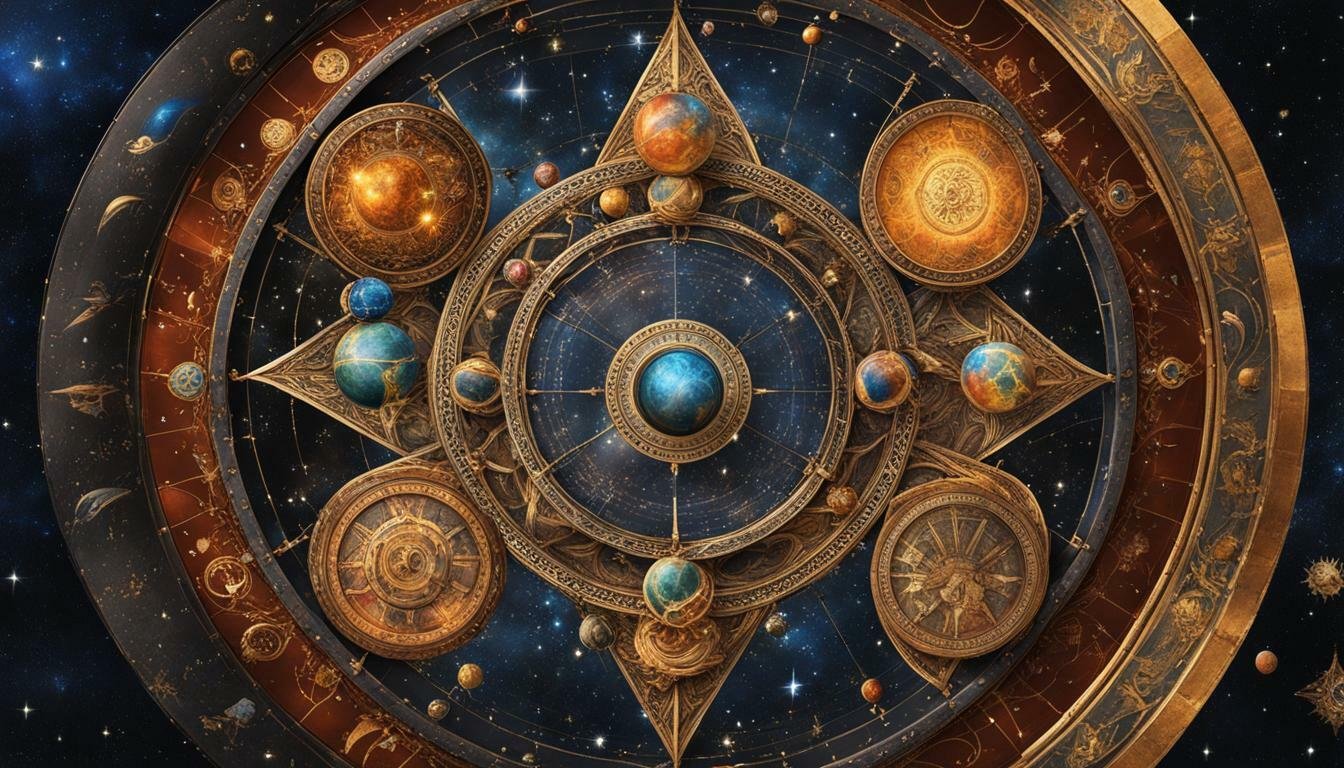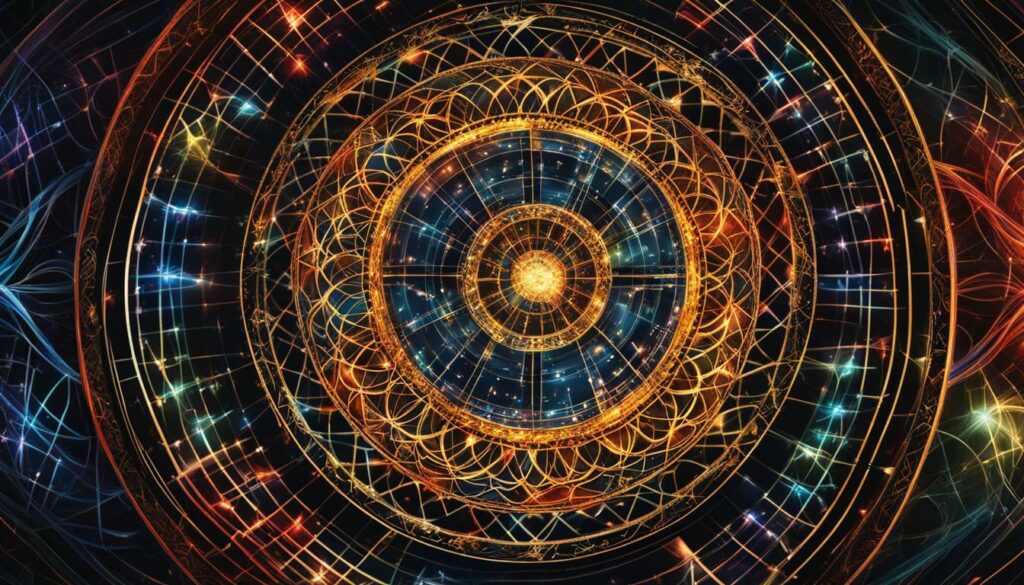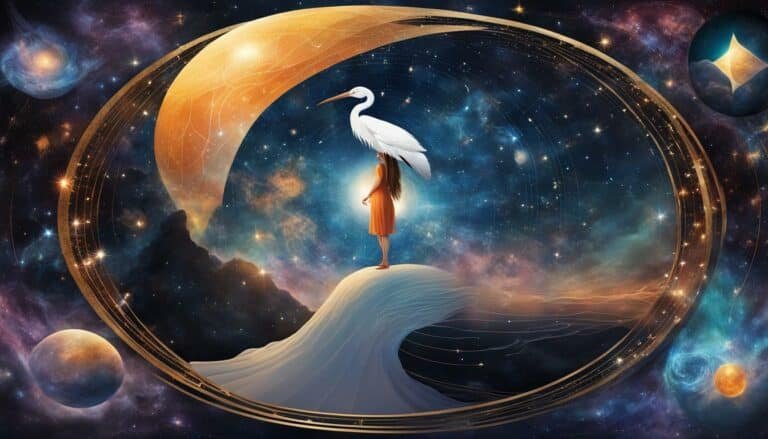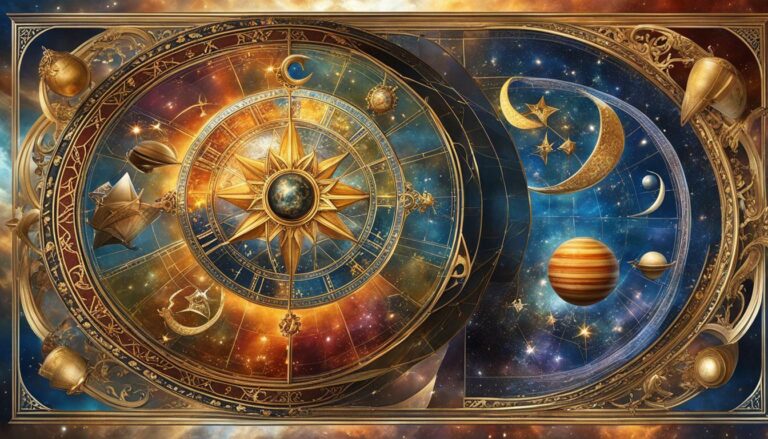Is Astrology Divination?
Welcome to this article, where we explore the question of whether astrology can be considered a form of divination. Many people believe that astrology is simply the study of the positions and movements of celestial bodies, while others see it as a tool for divination. So, is astrology divination? Let’s find out.
- Astrology is the study of celestial bodies and their movements.
- Divination refers to the practice of seeking spiritual insight or guidance.
- In this article, we will explore whether astrology can be considered a form of divination.
Understanding Astrology and Divination
Before exploring whether astrology can be considered a form of divination, it’s essential to understand the definitions of both practices. Divination is the process of seeking spiritual insights or knowledge about the future through various methods, including tarot cards, runes, oracles, and scrying. Astrology, on the other hand, is the study of celestial bodies and planetary influences on human lives.
There are various divination methods that individuals use to seek guidance, connect with the spiritual realm, or gain insight into their lives. These methods include tarot card readings, palm readings, and pendulum readings, among others. Astrology is another divination method that is often used to gain spiritual insights and understanding. Through the interpretation of the positions of celestial bodies, astrologers provide guidance to individuals looking for answers to questions about their lives.
While astrology and divination have different methods of interpretation and different tools, they share a common goal of providing spiritual insights and guidance. Astrology, in particular, provides spiritual insights through the interpretation of the positions of celestial bodies and planetary influences on individuals’ lives. Astrologers use zodiac signs and horoscope readings to make predictions about individuals’ lives, considering the positions of the planets and their influence on their destinies.
Therefore, in conclusion, astrology can be classified as a form of divination due to its predictive and divinatory elements. It provides guidance and insights into the future based on celestial alignments and interpretations of zodiac signs. Astrology is an ancient method of divination that has been used for centuries to seek spiritual insights and guidance.
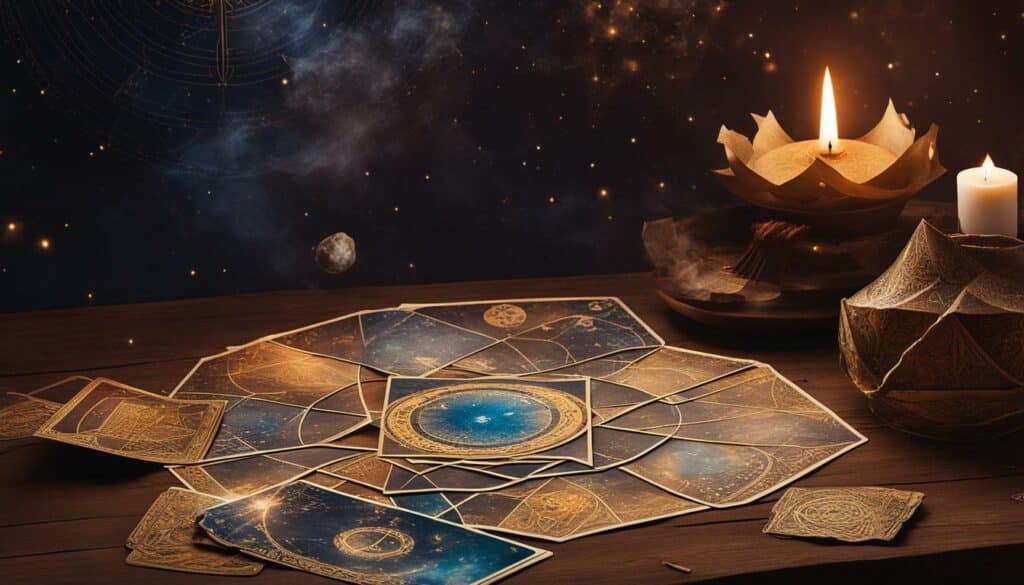
As an astrologer, one of the most common questions I receive from clients is how astrology can help predict their future. While it’s not a crystal ball, astrology can provide insights into potential experiences and the energy surrounding them.
Horoscope readings are a common way for astrologers to make predictions based on your birth date, time, and location. By analyzing the positions of the planets and their influence on your zodiac sign, astrologers can provide personalized predictions for your life. These predictions can range from personal relationships to career opportunities or even health concerns.
It’s important to note that astrology should not be used as a substitute for sound judgment or professional advice. Rather, it is a tool for self-reflection and guidance. Astrology can provide insights into the energy surrounding a particular situation and allow you to make informed decisions with that knowledge.
It’s also worth mentioning that astrology predictions are not set in stone. Your free will and actions can change the course of events in your life. However, astrology can provide valuable information to help you navigate the energies at play and make the most of the opportunities presented to you.
In the next section, we will explore the divinatory elements in astrology and how it provides guidance and insights into the future.
The Divinatory Elements in Astrology
As we have explored earlier, astrology involves interpreting the positions and movements of celestial bodies to provide insights and guidance about people’s lives. However, beyond just offering spiritual insights, astrology can also be viewed as a form of fortune telling, providing predictions about the future based on celestial alignments and interpretations of zodiac signs. In this way, astrology shares similarities with traditional divination practices.
The concept of fortune telling through astrology involves looking at a person’s birth chart or horoscope, which is a map of the positions of the planets at the time of their birth. Astrologers then interpret this chart to make predictions about various aspects of that person’s life, such as their career, relationships, and health. This process can involve analyzing the positions of the planets, the aspects between them, and their influence on the individual’s zodiac sign.
Some may argue that astrology’s predictive nature makes it a true form of divination. And, just like other divination practices, astrology offers celestial guidance and insights into one’s future, whether on a personal or global scale.
However, it is important to note that astrology is not a fixed science and that predictions are not always accurate. Factors such as free will and personal choice can also impact the outcome of events and should be considered when interpreting astrological predictions.
Overall, while astrology may share some similarities with traditional divination practices, it remains a distinct and unique discipline that offers spiritual insights and guidance through the interpretation of celestial bodies and planetary influences.
Conclusion: Astrology as a Form of Divination
After exploring the definitions of astrology and divination and examining the predictive and divinatory elements of astrology, I believe that astrology can be considered a form of divination.
While astrology may not fit the stereotypical image of a crystal ball or tarot cards, it does provide individuals with spiritual insights and guidance into their future based on celestial alignments and planetary influences. Astrology’s predictive nature allows individuals to gain a better understanding of themselves and their potential paths in life.
Furthermore, astrologers use various divination methods to interpret celestial bodies and planetary movements to provide guidance, similar to traditional divination practices. Astrology can be seen as a form of fortune telling, providing individuals with celestial guidance and insights into their future.
Overall, despite some differences between astrology and traditional divination practices, astrology shares many similarities and can be classified as a form of divination. As individuals continue to seek spiritual guidance and insight, astrology remains a valuable tool for those seeking to understand the celestial influences on their lives.
FAQ
Q: Is astrology considered a form of divination?
A: Yes, astrology can be considered a form of divination. Divination is the practice of seeking spiritual insights or knowledge about the future through various methods, and astrology fits within this definition.
Q: What is the difference between astrology and divination?
A: While astrology is a specific practice that involves interpreting celestial bodies and planetary influences, divination is a broader term that encompasses a range of methods used to access spiritual insights. Astrology can be seen as one of the many divination methods available.
Q: How does astrology make predictions?
A: Astrologers make predictions based on zodiac signs and horoscope readings. They consider the positions of the planets at specific times and their influence on individuals’ lives. By interpreting these celestial alignments, astrologers can provide insights into future events and potential outcomes.
Q: Can astrology be considered fortune telling?
A: Yes, astrology can be seen as a form of fortune telling. Astrologers use celestial alignments and interpretations of zodiac signs to provide guidance and insights into the future. By understanding the influences of the planets, astrologers can offer information that can help individuals make informed decisions and navigate their paths in life.
Q: Is astrology a reliable source of guidance?
A: The reliability of astrology as a source of guidance varies depending on personal beliefs and experiences. Some individuals find astrology to be a valuable tool for self-reflection and decision-making, while others may not place as much importance on astrological interpretations. It is ultimately up to each individual to determine the significance they attribute to astrology in their own lives.

